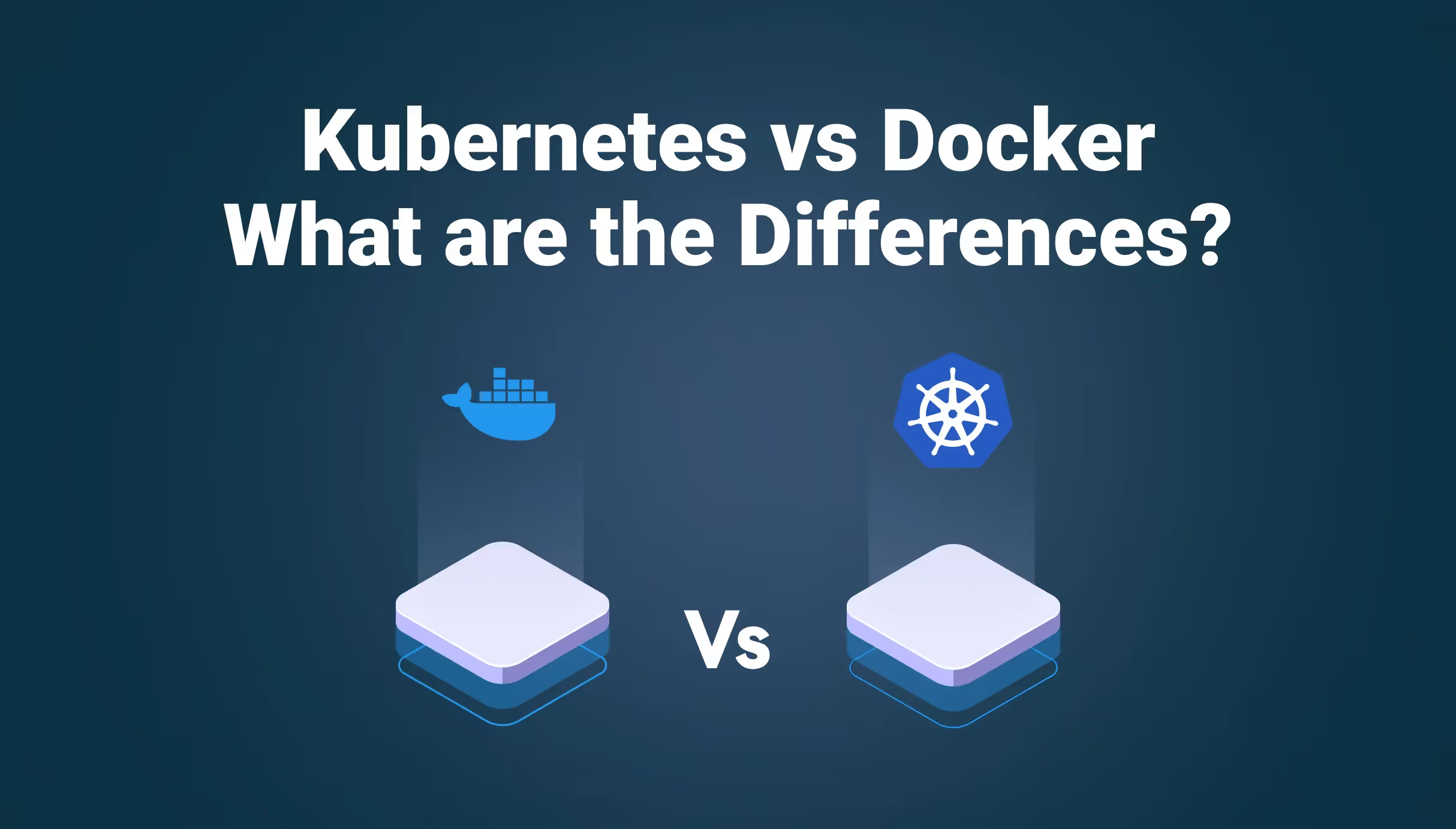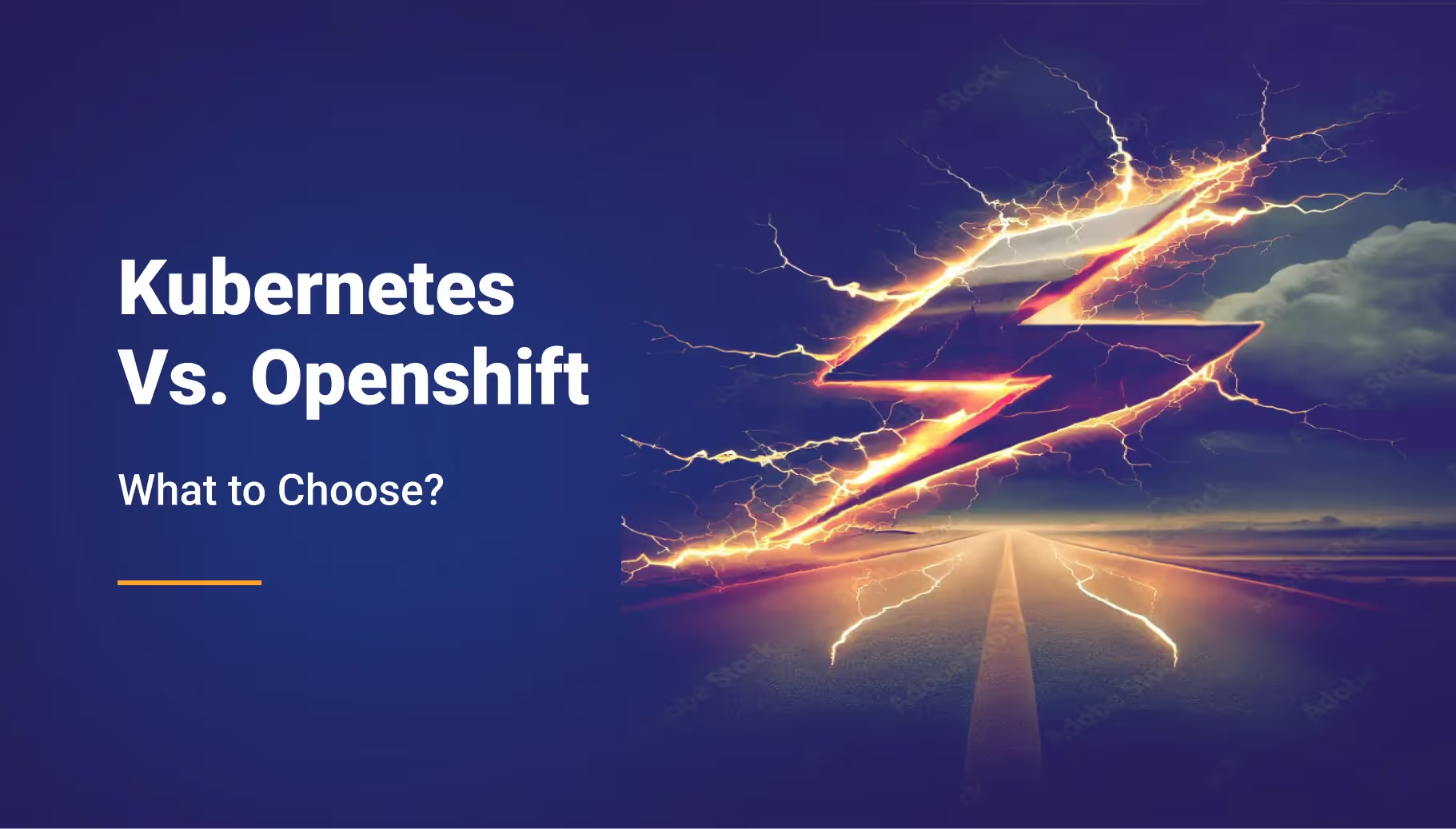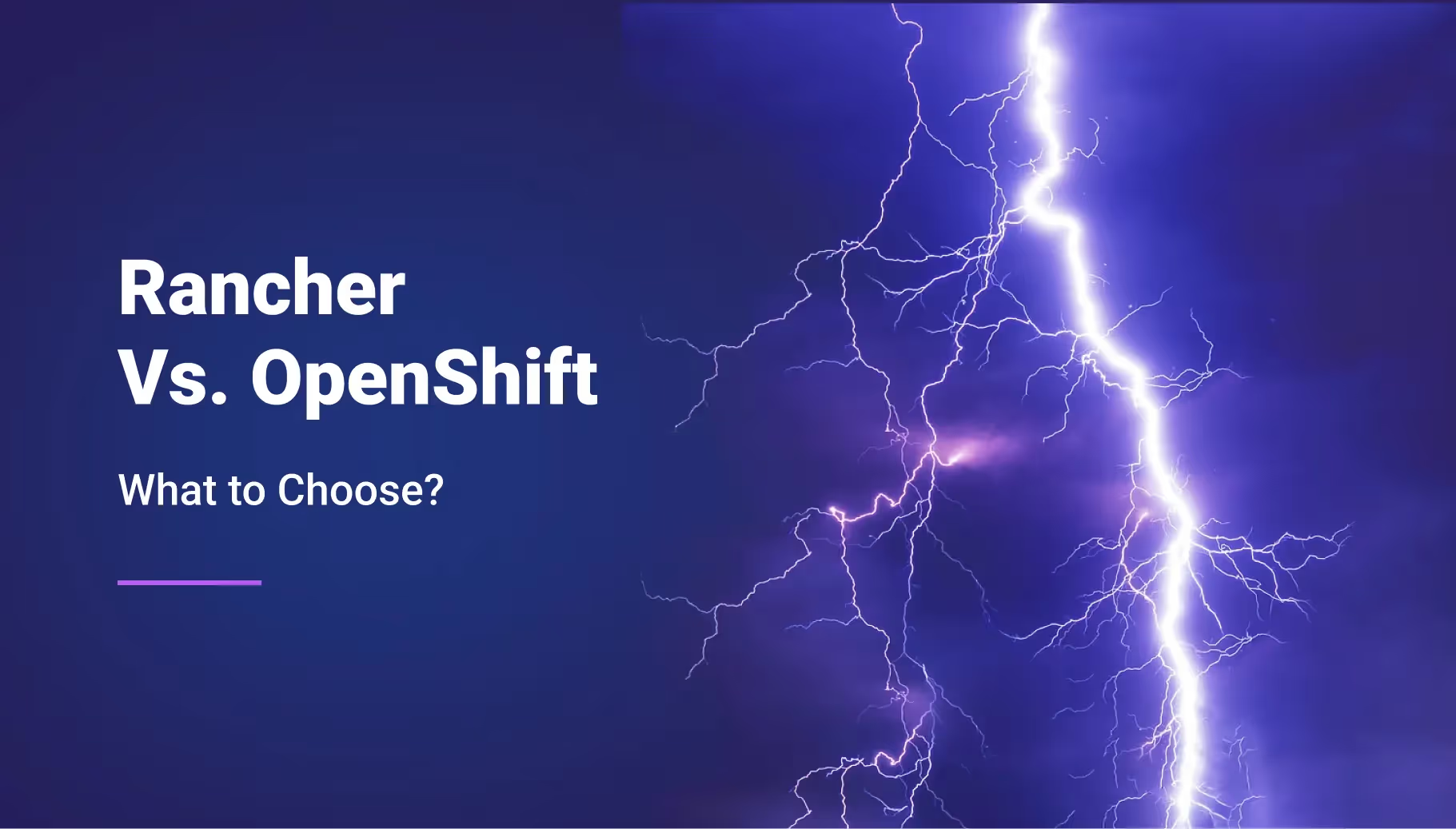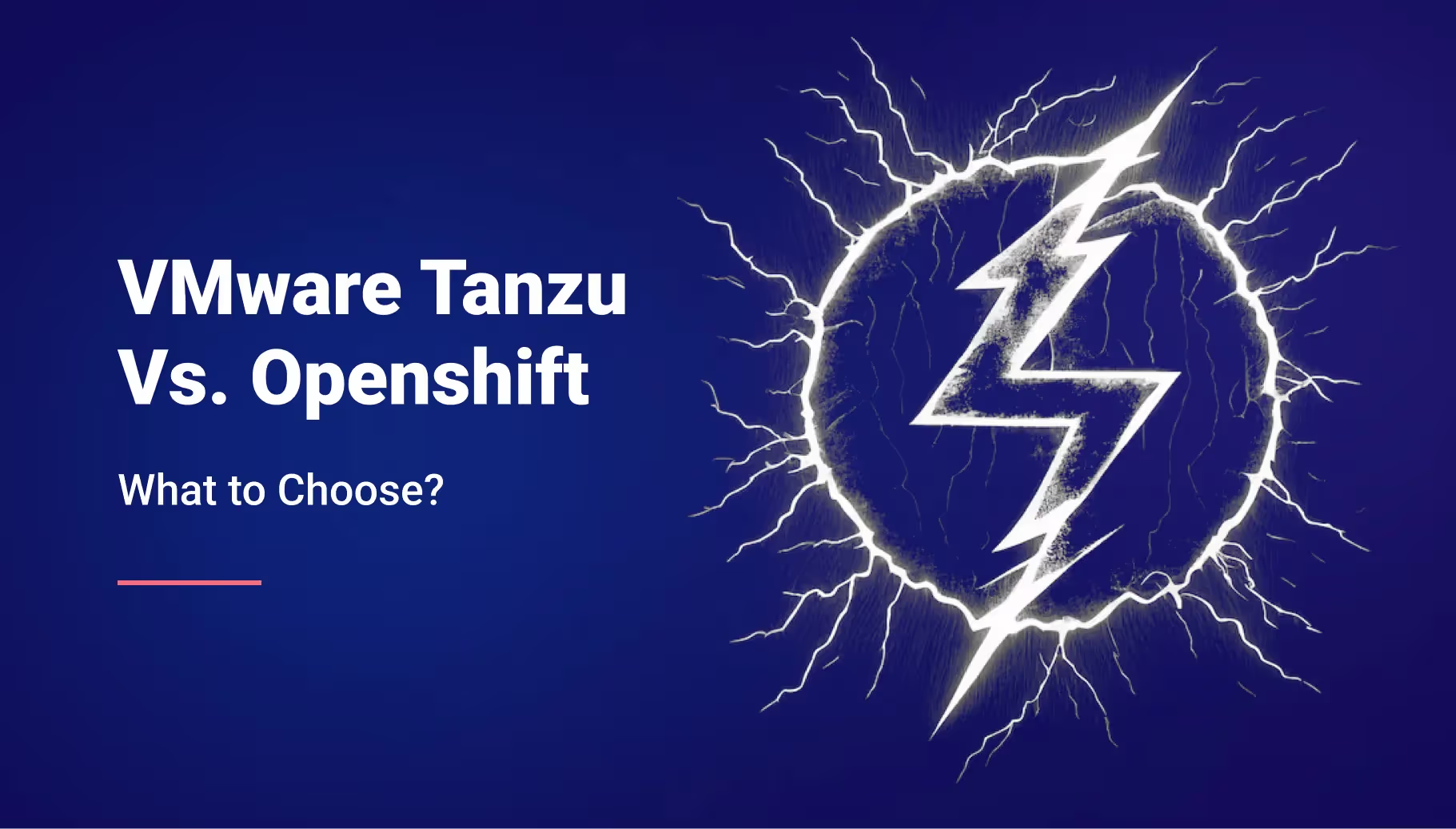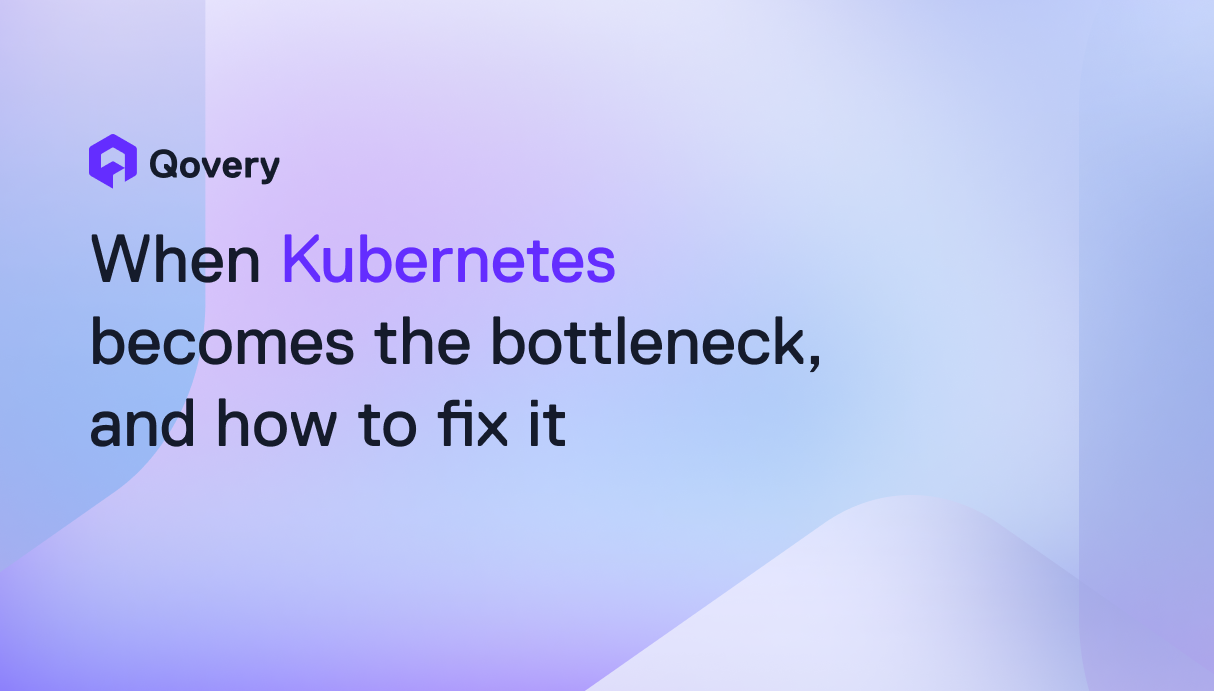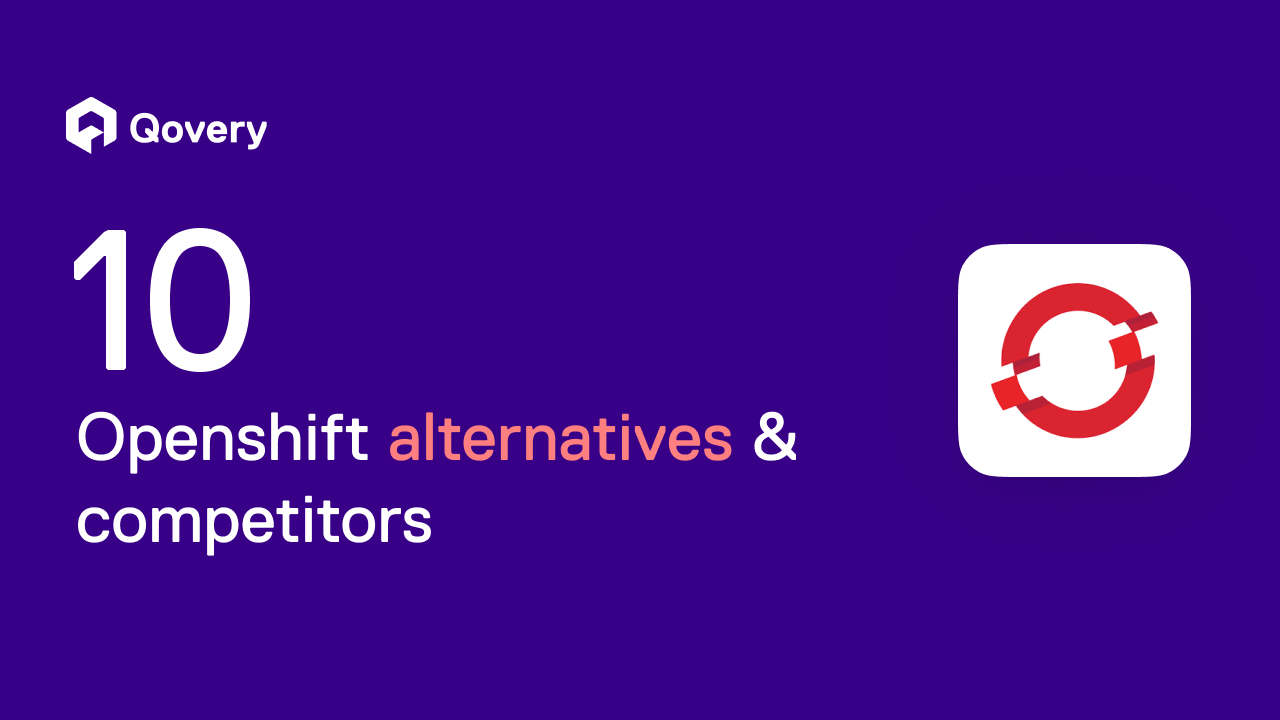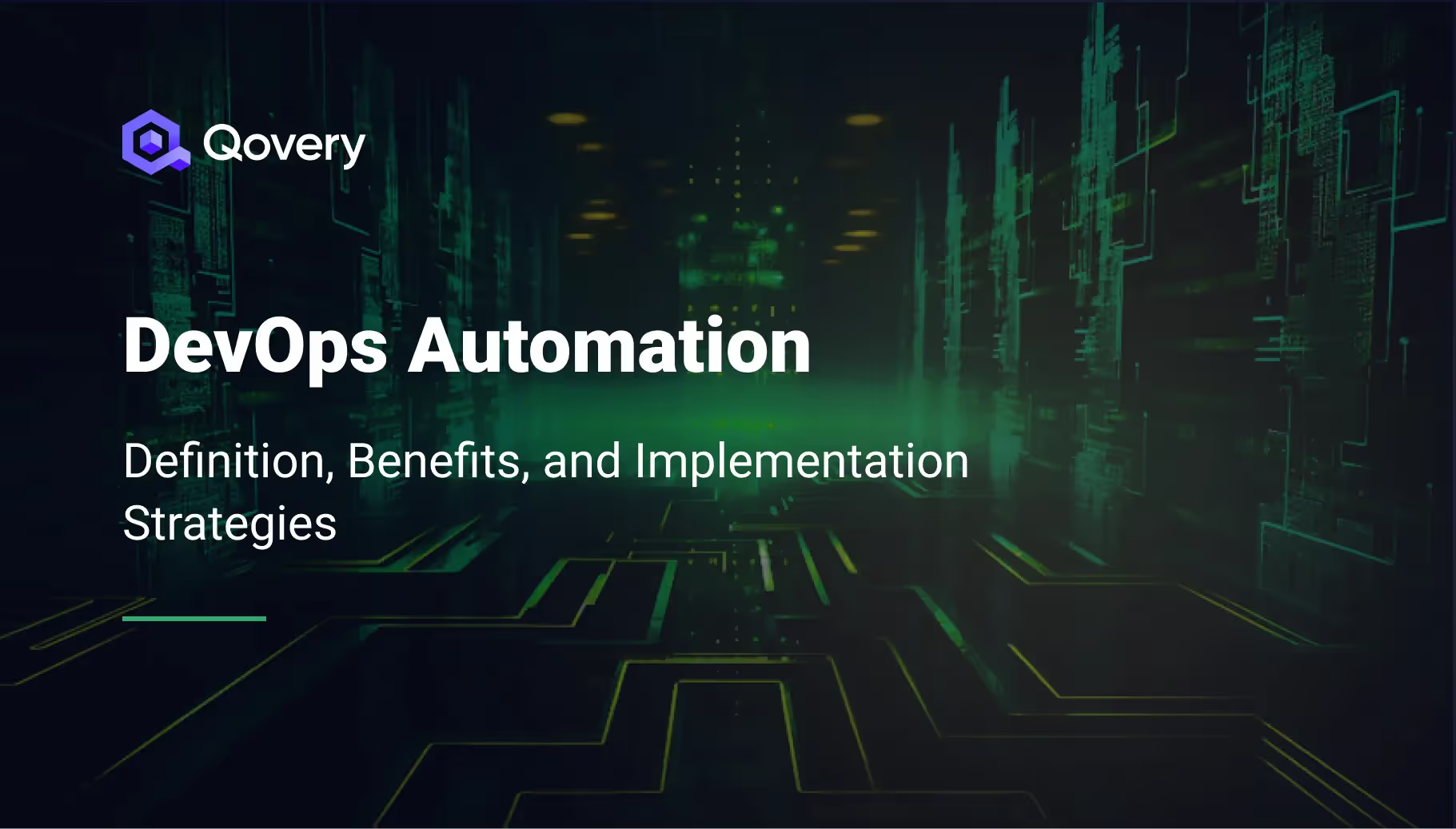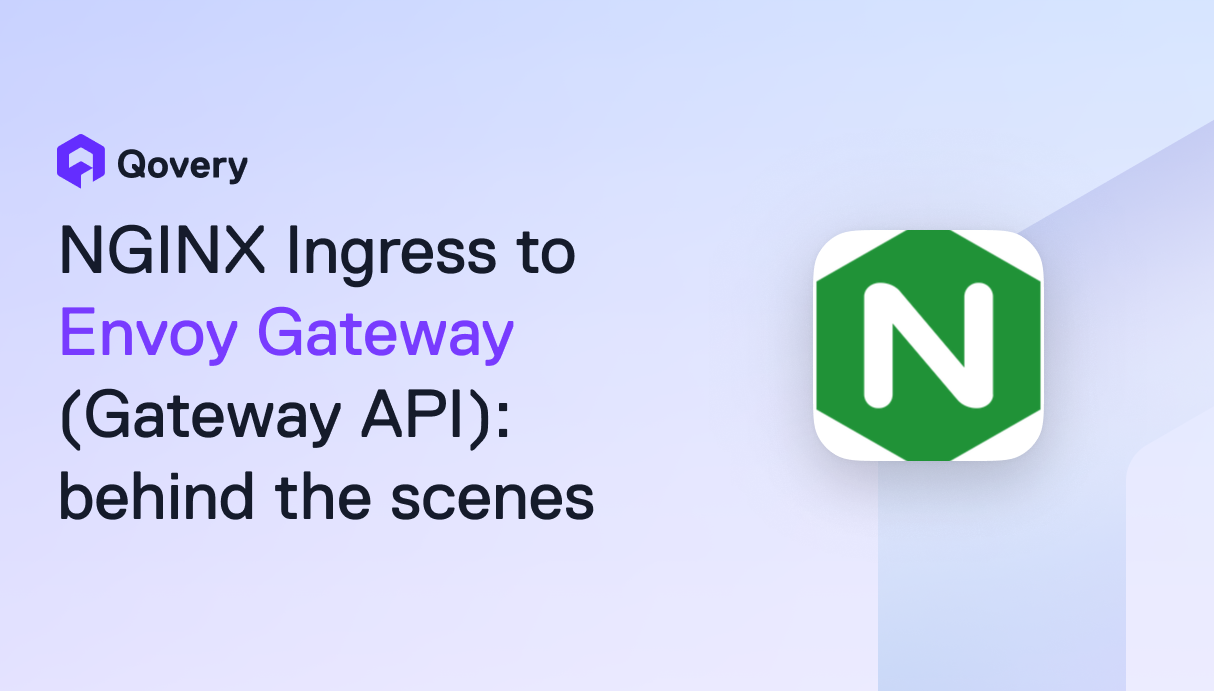
Deploy a Production-Ready AKS Cluster on Azure in 10 Minutes

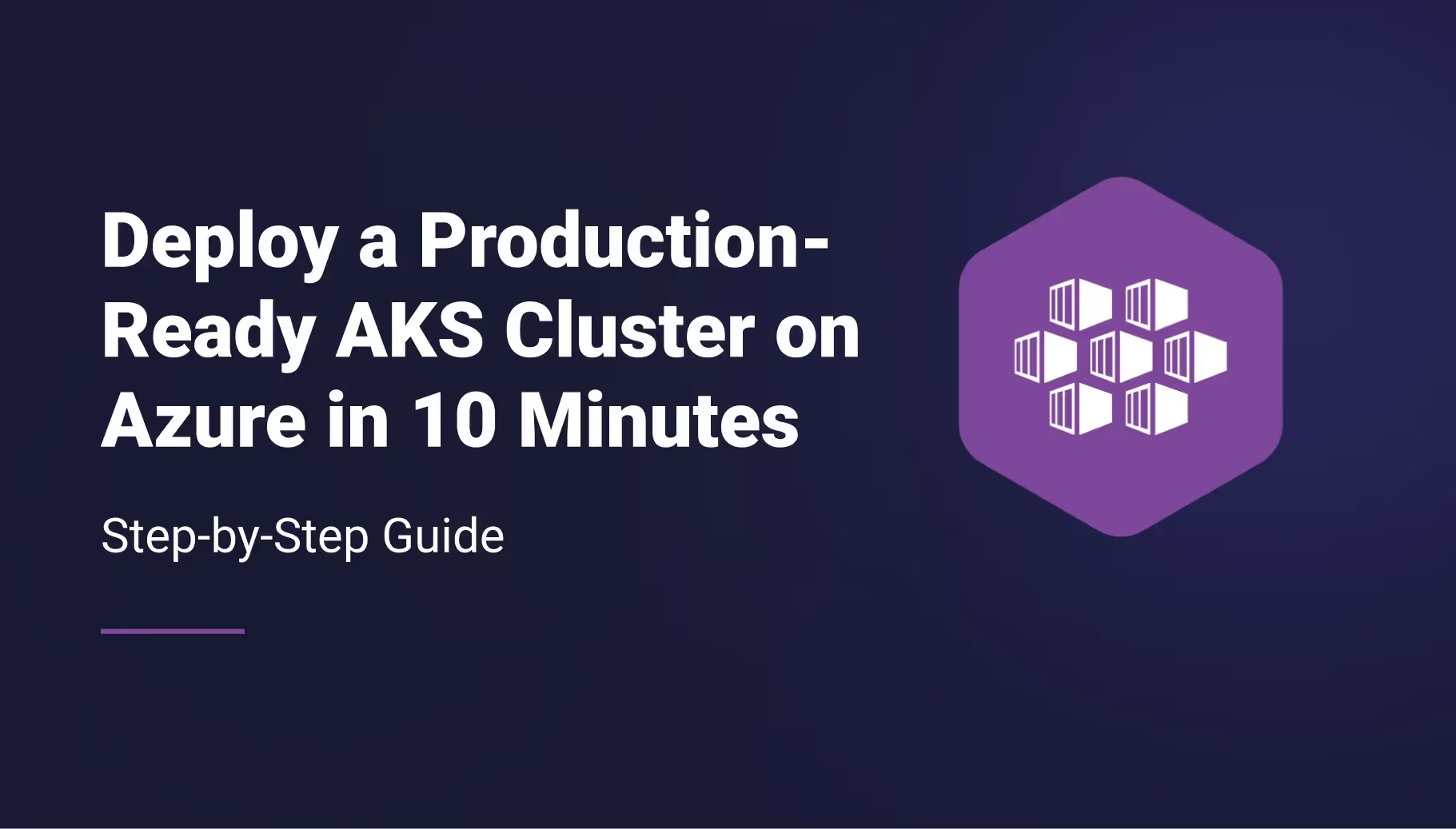

If you’re building on Microsoft Azure and want a fast way to get a production-ready AKS cluster without diving into ARM templates, Helm charts, or Terraform - this guide is for you.
In less than 10 minutes, you’ll provision and configure an AKS cluster with best practices, full observability, TLS, autoscaling, and zero manual maintenance - all through the Qovery web console.
Why Use Qovery to Deploy Azure AKS?
Qovery handles the AKS setup, config, and lifecycle management for you. You connect your Azure account, choose a region, and Qovery does the rest:
- Creates the AKS cluster (multi-AZ, production-tuned)
- Installs all required components (Cert-Manager, Prometheus, Promtail, etc.)
- Keeps everything up to date automatically - even the Kubernetes version
You get full control over your infrastructure (Qovery is Bring Your Own Cloud) while offloading the complexity of setting up and maintaining your cluster.
Prerequisites
- An Azure account with an active subscription
- No Kubernetes, Azure CLI, or Helm knowledge needed
Step-by-Step: Deploy AKS in 10 Minutes
1. Log in to the Qovery Console
Go to https://console.qovery.com and sign up or log in.

2. Create an Organization
Create a new Team Organization - this is where you’ll manage your clusters and environments.
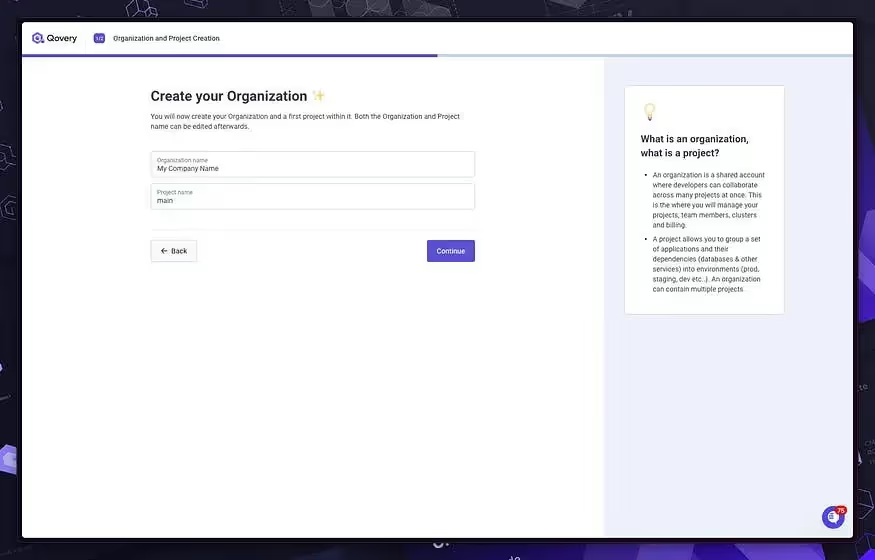
3. Create a Cluster
a/ Choose Azure as your cloud provider
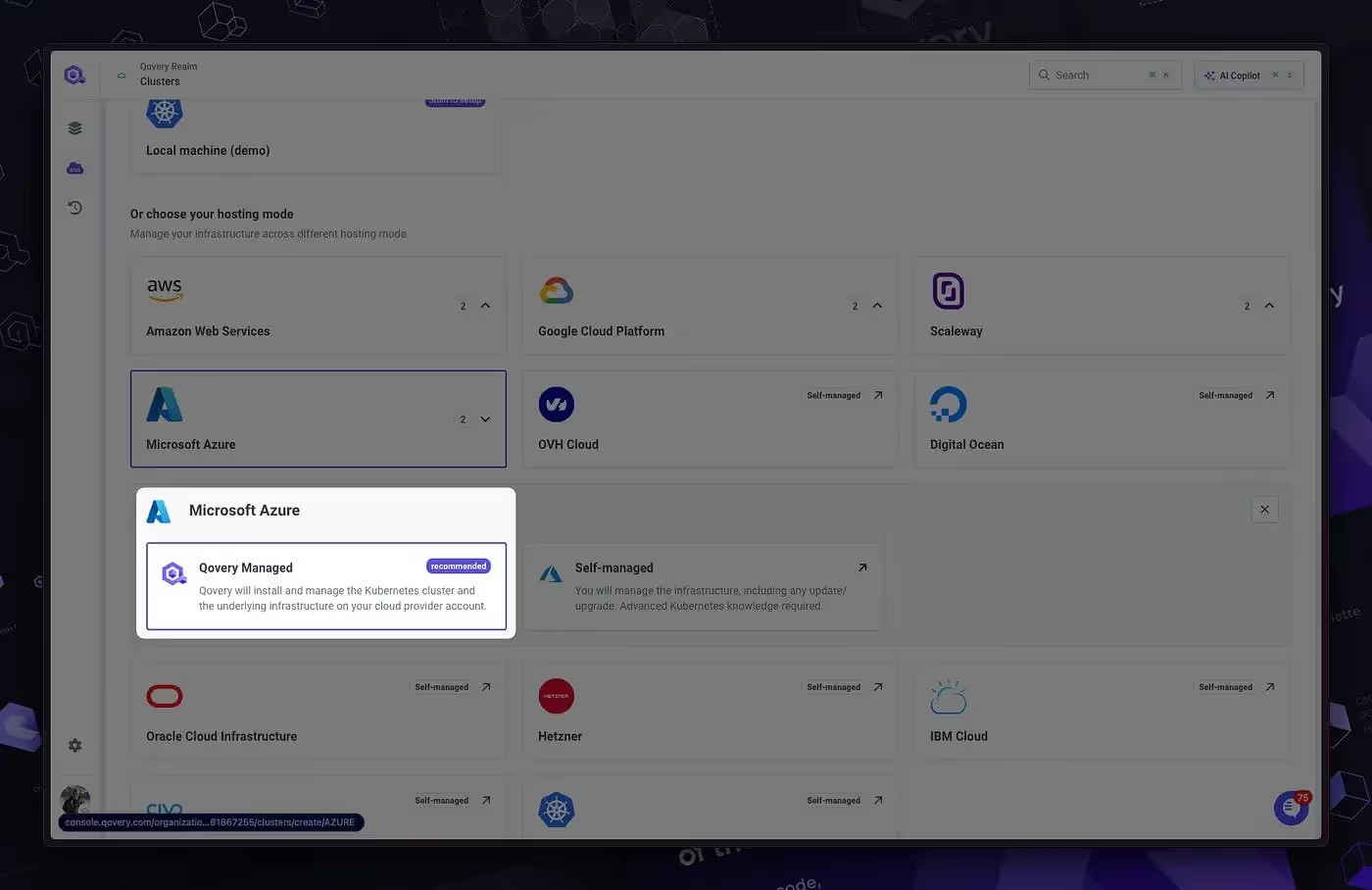
b/ Select your region (e.g., westeurope, eastus)
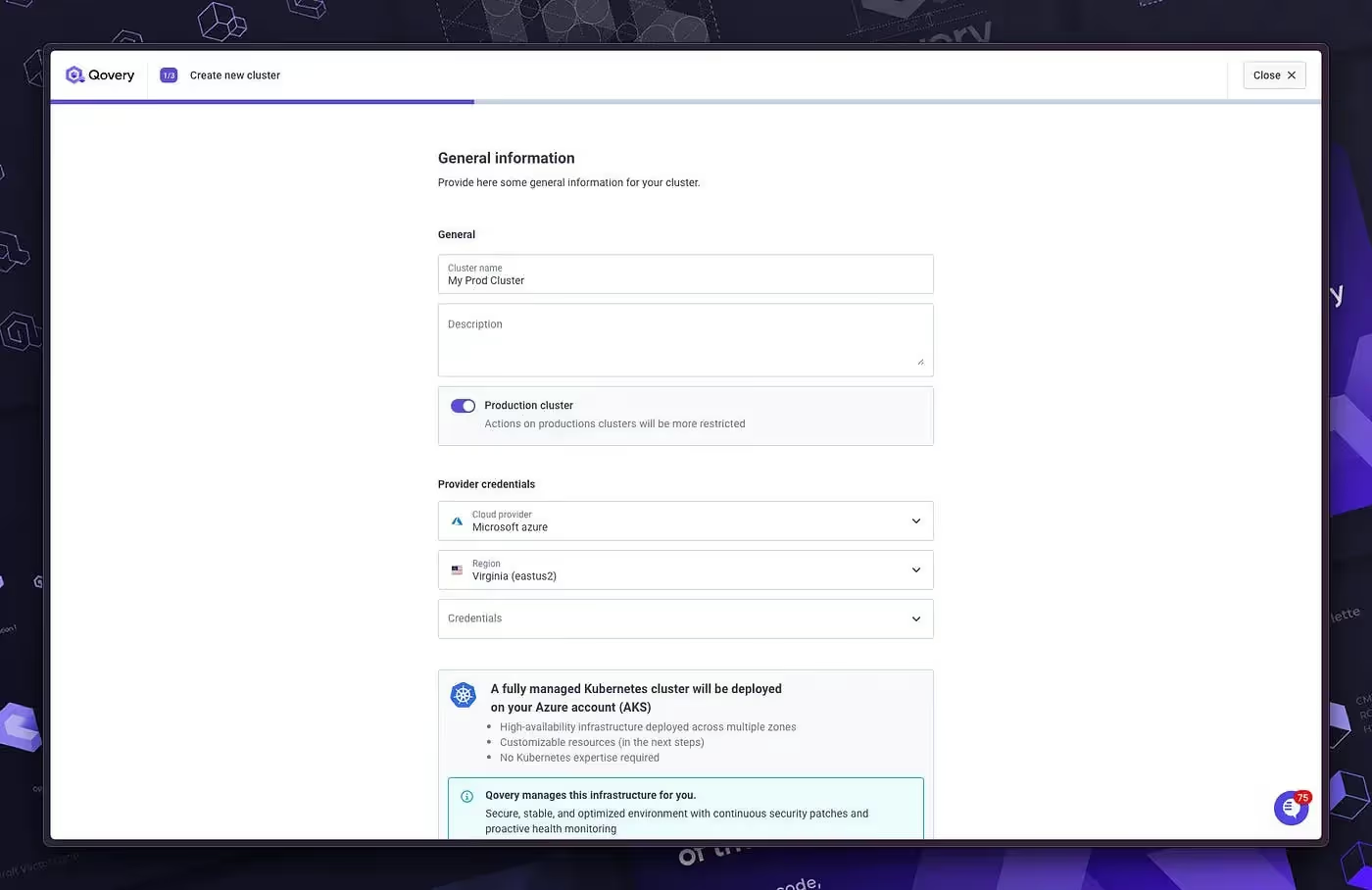
c/ Enter your Azure Service Principal credentials
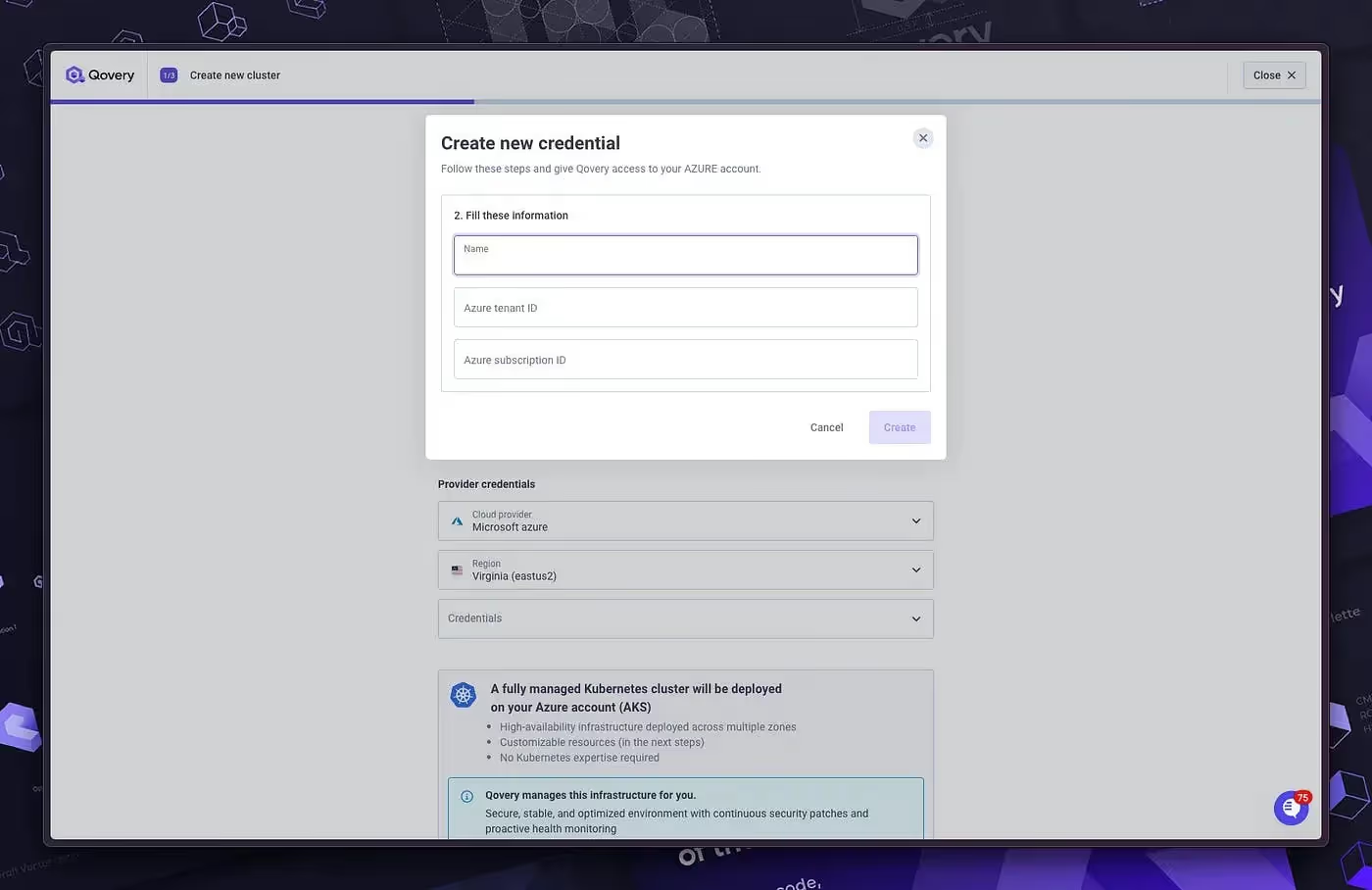
d/ Set your type of nodes (you can update them later on)
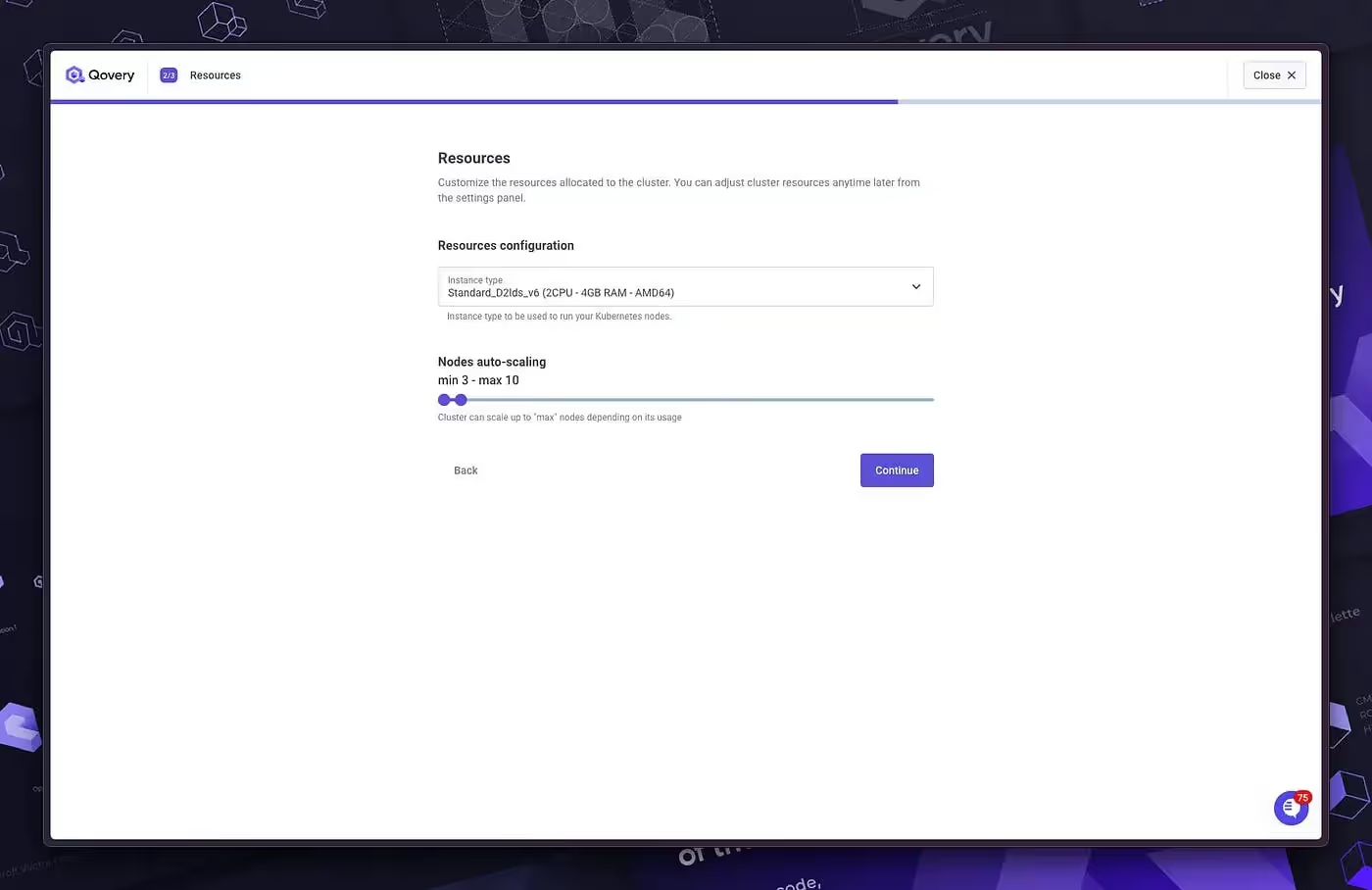
Qovery will:
- Create an AKS cluster with production-ready settings
- Set up the VNET, subnets, and availability zones
- Enable autoscaling and integrate with the Azure API for lifecycle automation
4. Deploy the Cluster
Click “Create and Deploy”. Cluster provisioning typically takes 15–25 minutes.
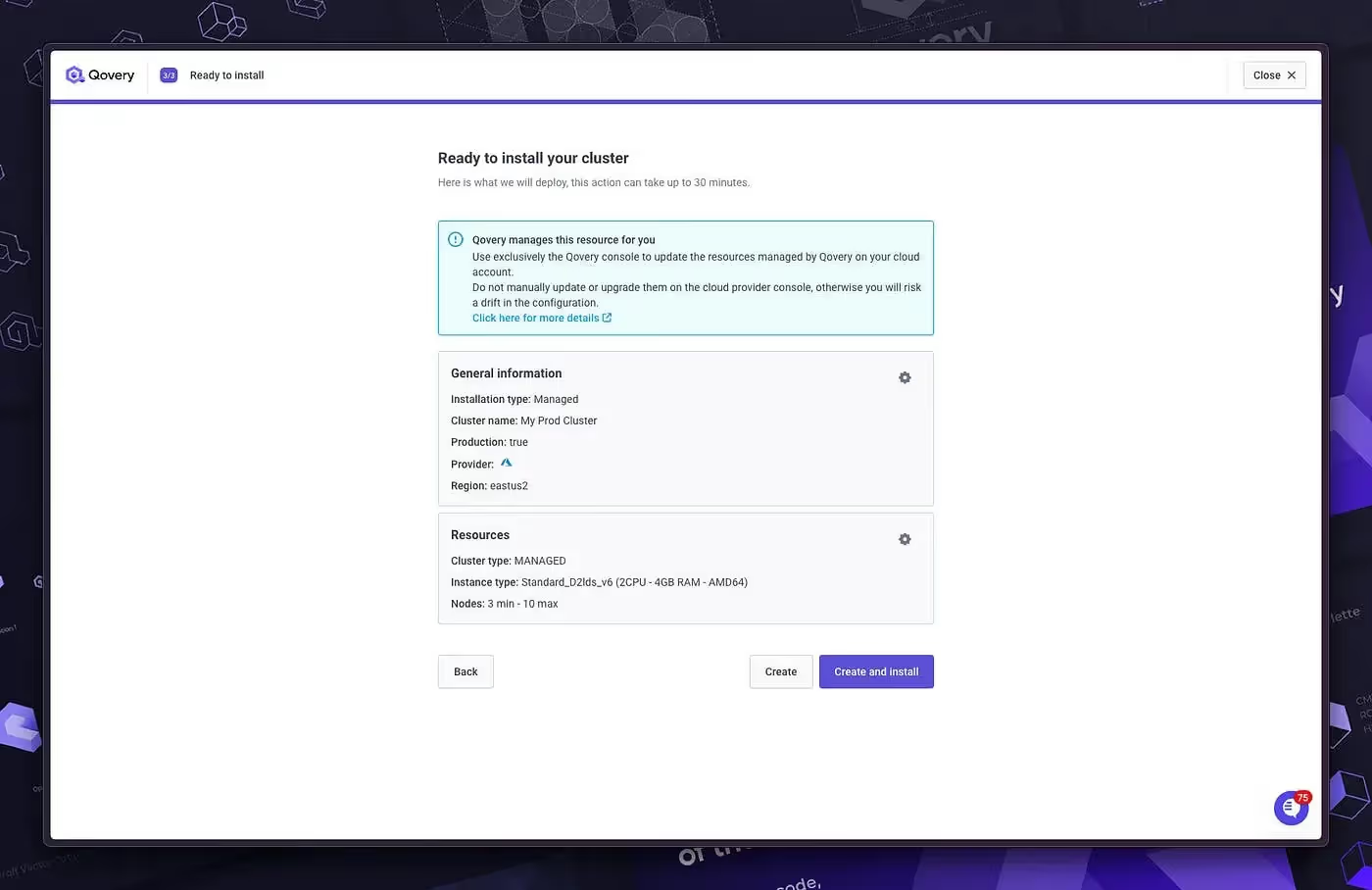
Behind the scenes, Qovery installs:
- Let’s Encrypt + Cert-Manager for automatic TLS
- Prometheus and Promtail for metrics and logs
- Kubernetes add-ons tuned for reliability, scalability, and security
This is what you should see when your AKS cluster is ready:
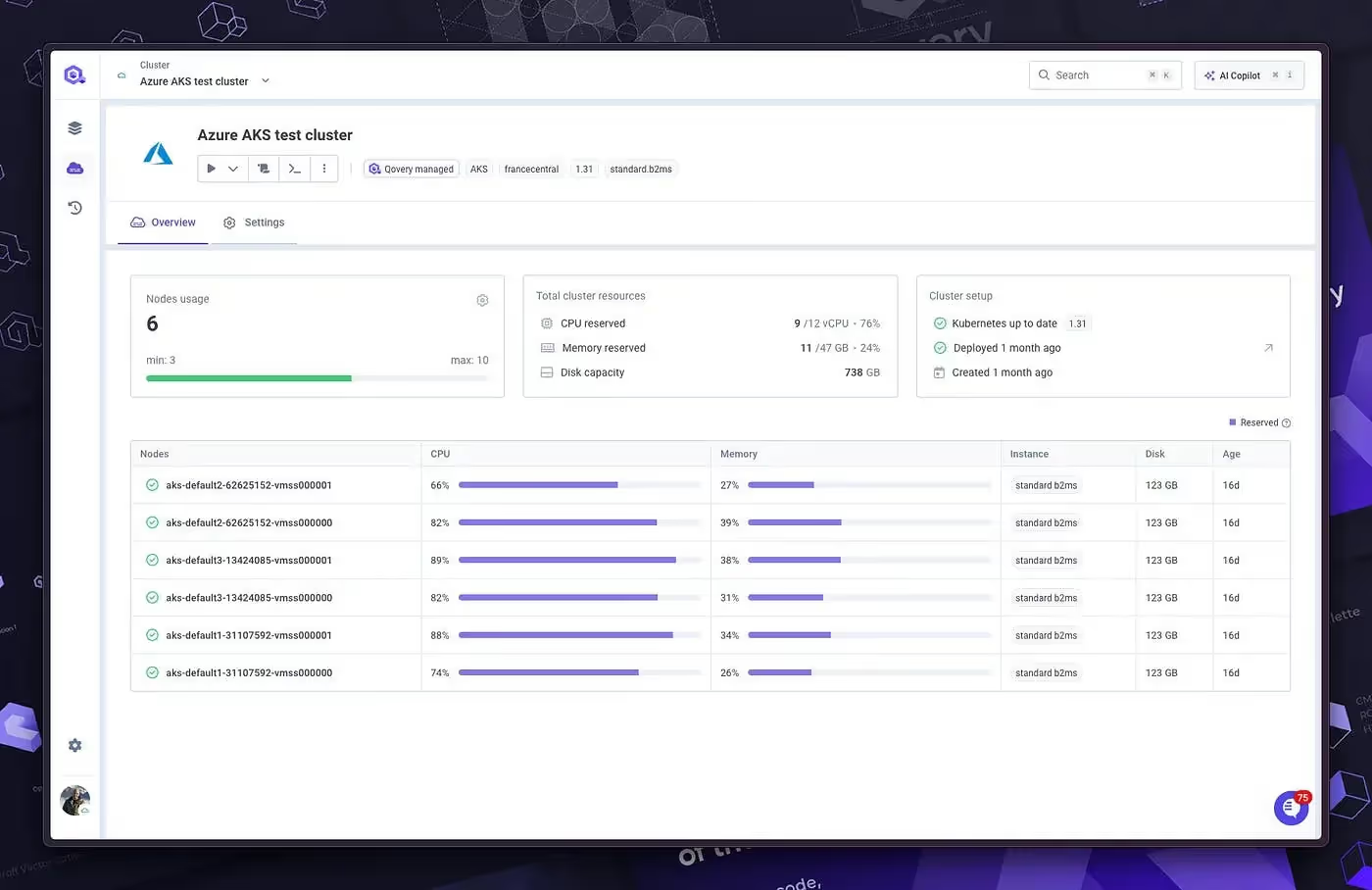
What You Get Out of the Box
Your AKS cluster, fully operational and production-grade:
- Multi-AZ setup with Azure-managed VMs
- VNET and subnet isolation
- Auto-managed TLS via Cert-Manager and Let’s Encrypt
- Observability: Prometheus + Promtail pre-installed
- Automatic Kubernetes version upgrades and patching
- Cost-efficient autoscaling with Qovery’s default node pool config
Qovery handles upgrades, patching, and the health of all installed components - no maintenance required from your side.
Final Thoughts
AKS is powerful, but provisioning and managing it manually takes time and experience. With Qovery, you can go from a clean Azure account to a production-ready Kubernetes cluster in under 10 minutes - no scripts, no DevOps team needed.
Whether you’re:
- A product needing fast infra setup
- Developers who want to ship faster and reliably
Qovery helps you run AKS without the pain of Kubernetes. Try it now!

Suggested articles
.webp)



.svg)
.svg)
.svg)
